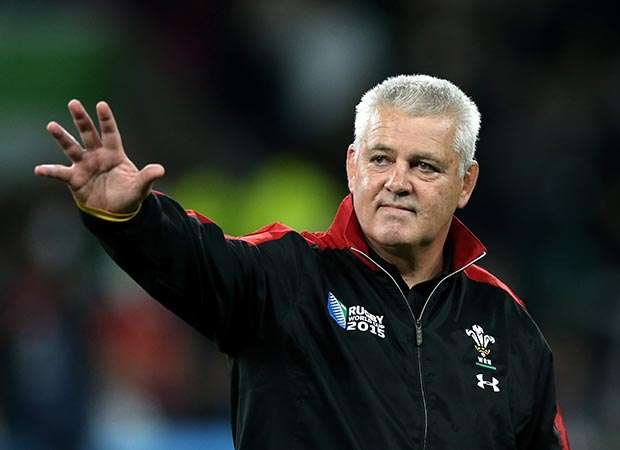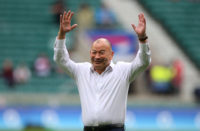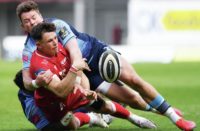 RFU chiefs must pay whatever it takes to buy Warren Gatland out of his Wales contract, according to former England 7s coach Mike Friday.
RFU chiefs must pay whatever it takes to buy Warren Gatland out of his Wales contract, according to former England 7s coach Mike Friday.
Friday believes the New Zealander is the best man to turn England’s flagging fortunes around. With Stuart Lancaster unlikely to survive the fallout from England’s disastrous World Cup showing, Ireland’s Joe Schmidt has also emerged as a potential successor.
However, Friday insists the governing body should look no further than Gatland, who is contracted to Wales until 2019 but has a £1.2m buy-out clause.
Friday told The Rugby Paper: “Schmidt has the capability, a proven track record in the Top 14 and in Ireland and I’ve heard him likened to Brian Clough in his outlook. He’s right up there, but I’d still say he’s behind Gatland.
“For me, Gatland’s the man for England. He understands how to make things happen and make it work, and what he’s achieved with Wales considering the club game was in disarray has been phenomenal.
“His ability to put together clarity of vision and get selections right, both at squad level and the match 23, is clear to see. He’s done it in the Premiership with Wasps, with Waikato, and he’s done it with Wales and the Lions.
“He creates an empathy and understanding with players, but he also has the ability to keep them on their toes, as well as his coaches.
“The RFU must get the right man for the job and then give him the autonomy to pick what he needs underneath to make that work, but he also needs the support from somebody above to ensure he has the capability to get the job done.
“It will cost money to get the right man, but the reality is it’s not that much considering the lost revenue from the failings of the World Cup.”
Friday, meanwhile, has questioned the make-up of the RFU’s review panel into England’s World Cup nightmare, which he fears will not probe deeply enough into wider failings within the organisation’s elite performance department.
He also calls into question the future of professional rugby director Rob Andrew, whose watch has coincided with two World Cup failures while England have plummeted to eighth in the rankings – equalling their worst ever position.
“I’m amazed at who’s on the panel,” Friday said. “Should Ian Ritchie and Ian McGeechan be on it after appointing Stuart Lancaster in 2012? It’s odd, and why people like Jason Leonard and Clive Woodward aren’t there is beyond me.
“What Clive has is a very objective, hard-hitting way of analysing things and there need to be people on this panel who are prepared to cut through the long grass and weed out people who’ve been hiding in the performance department.
“Stuart Lancaster is only part of the picture, there’s a wider issue of what’s going on in that performance department and how certain people have just disappeared now that these England results have come to fruition.
“It’s very noticeable how we’ve heard nothing from Rob Andrew, yet he’s been very much part of the appointments process since 2007. His position must be reviewed and people in that performance set-up held accountable.
“Performance is about cracking eggs, pushing boundaries and putting your head above the parapet, but I don’t see any of that.”
Friday, who worked within the RFU until 2007, also bemoans the RFU’s dismantling at that time of Brian Ashton’s junior national academy, set-up in 2003 with the intention of honing the skills of an elite playing group.
England’s core skills were found wanting at the World Cup, leaving Friday to conclude: “They took the National Academy apart post-2006-07 and it was the wrong call – and again you must question who was behind that decision.
“We had a group of coaches including Brian, myself, Jim Mallinder, Dorian West and John Wells who were dedicated to developing skills and embedding proper techniques and tactical understanding. Disbanding it was a poor decision.
“Guys like Danny Cipriani, Danny Care, Ben Foden, Mathew Tait and Dylan Hartley were all part of that group and it would be interesting to know how beneficial they found it. They’re all still around, so I daresay it would be positive.
“England’s skills have let them down and people now wonder why? Player identification seems to be pretty good amongst 16 to 18-year-olds, but what’s happening between age 18 and 22? And are they playing enough?”
NEALE HARVEY























